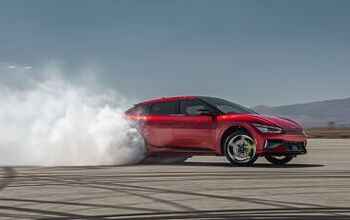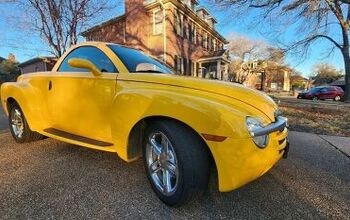Mercedes Charts Electric Course for Vans, Bringing Luxocruisers Stateside

If you’ve travelled abroad and marveled at rigs like the factory-built luxury vans (that aren’t industrial-grade Sprinters) tasked with shuttling and chauffeuring, you may be interested to learn Mercedes-Benz is planning to sell such machines in America. In addition to setting its sights on that relatively untapped market in this neck of the woods, Stuttgart is readying the roll-out of its all-electric van architecture.
First, the people carriers. Mercedes-Benz refers to them as “privately positioned midsize luxury vans”, referring not to the position of ones privates whilst driving the things but rather the intent of these vans to serve as luxury transportation for humans. This differs from converted Sprinter vans, some of which have sumptuous interiors but retain the underpinnings of a utilitarian machine designed to move cargo. On certain roads, this is evident.
During overseas hops, we’ve ridden in numerous examples of the passenger vans Merc is planning to bring here and can tell you the difference between those rigs and a converted Sprinter is stark. It surely won’t take long for livery services and the like to fill their fleets with these vans, meaning we should expect to see them in the perpetually congested pickup/dropoff lanes at LAX in short order. Mercedes believes there is growth opportunity with the V-Class, and they’re probably correct.
Underpinning these efforts will be M-B’s new VAN.EA architecture, an all-electric platform that will find homes under private vans and cargo carriers alike. Merc has already been dabbling in this arena with the eSprinter (which is different from the V-Class), installing a 113-kWh battery in a pre-production example and driving the thing from Vegas to Long Beach without stopping to recharge on the 275-mile journey. Specifics on the VAN.EA platform will appear closer to its expected introduction in 2026.
While some will mutter about range and charging opportunities for long distance deliveries, the fact remains that – in large centers – many cargo vans and passenger vans find themselves in environs suited for all-electric driving. Being stuck in LA traffic means plenty of regeneration opportunities instead of idling away fuel stores, while the van’s downtime will likely coincide with off-peak grid hours when electricity is cheaper for charging. Sure, there are numerous companies whose vehicles are operating 24/7 (if the wheels ain’t moving, the van ain’t making money) but an all-electric van will absolutely be the right fit for some customers.
[Images: Mercedes-Benz]
Become a TTAC insider. Get the latest news, features, TTAC takes, and everything else that gets to the truth about cars first by subscribing to our newsletter.

Matthew buys, sells, fixes, & races cars. As a human index of auto & auction knowledge, he is fond of making money and offering loud opinions.
More by Matthew Guy
Latest Car Reviews
Read moreLatest Product Reviews
Read moreRecent Comments
- Varezhka The biggest underlying issue of Mitsubishi Motors was that for most of its history the commercial vehicles division was where all the profit was being made, subsidizing the passenger vehicle division losses. Just like Isuzu.And because it was a runt of a giant conglomerate who mainly operated B2G and B2B, it never got the attention it needed to really succeed. So when Daimler came in early 2000s and took away the money making Mitsubishi-Fuso commercial division, it was screwed.Right now it's living off of its legacy user base in SE Asia, while its new parent Nissan is sucking away at its remaining engineering expertise in EV and kei cars. I'd love to see the upcoming US market Delica, so crossing fingers they will last that long.
- ToolGuy A deep-dive of the TTAC Podcast Archives gleans some valuable insight here.
- Tassos I heard the same clueless, bigoted BULLSHEET about the Chinese brands, 40 years ago about the Japanese Brands, and more recently about the Koreans.If the Japanese and the Koreans have succeeded in the US market, at the expense of losers such as Fiat, Alfa, Peugeot, and the Domestics,there is ZERO DOUBT in my mind, that if the Chinese want to succeed here, THEY WILL. No matter what one or two bigots do about it.PS try to distinguish between the hard working CHINESE PEOPLE and their GOVERNMENT once in your miserable lives.
- 28-Cars-Later I guess Santa showed up with bales of cash for Mitsu this past Christmas.
- Lou_BC I was looking at an extended warranty for my truck. The F&I guy was trying to sell me on the idea by telling me how his wife's Cadillac had 2 infotainment failures costing $4,600 dollars each and how it was very common in all of their products. These idiots can't build a reliable vehicle and they want me to trust them with the vehicle "taking over" for me.



































Comments
Join the conversation
Minnesota > Stuttgart
V-Class looks good.